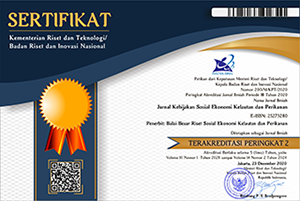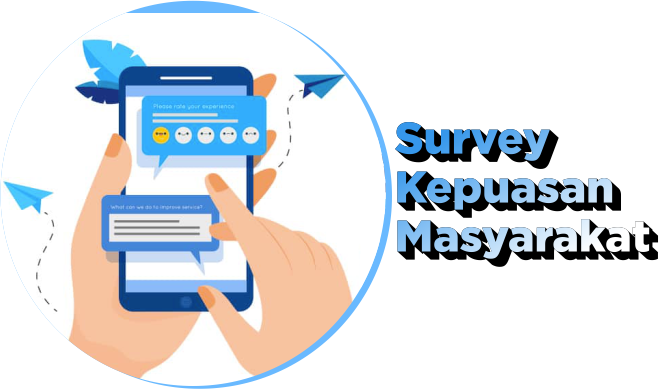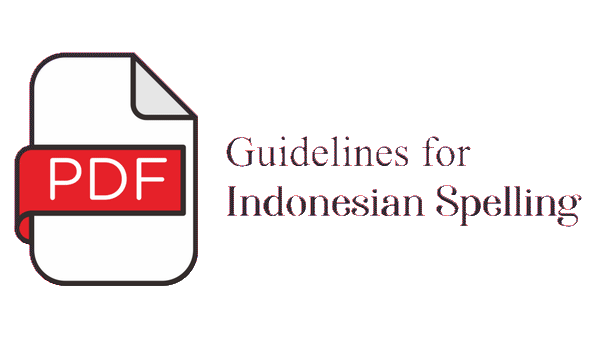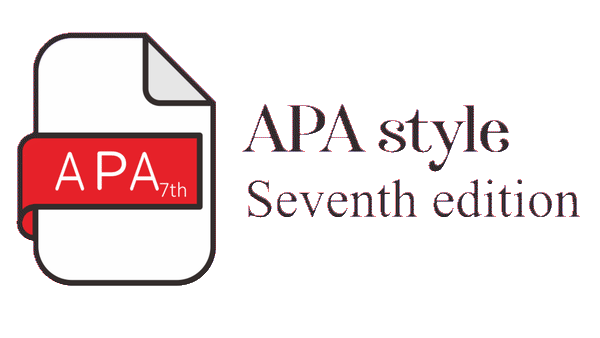Persepsi Masyarakat Untuk Pengembangan Wisata Berkelanjutan di Pesisir Madura
Abstract
Pemerintah Kabupaten Bangkalan menyusun rencana untuk mengoptimalkan potensi wilayah pesisir
melalui pembangunan wisata berkelanjutan di Desa Tajungan. Dalam hal ini, pelibatan masyarakat dalam perumusan kebijakan terkait merupakan hal yang sangat relevan. Tujuan penelitian adalah untuk mengidentifikasi persepsi masyarakat, terutama mengenai dampak terkait, yang harus diprioritaskan penanganannya oleh pengambil kebijakan. Terdapat tiga kriteria dampak pengembangan pariwisata berkelanjutan, baik positif maupun negatif, yang dijadikan fokus perhatian dalam penelitian ini, yaitu dampak ekonomi, sosial budaya, dan lingkungan. Pendekatan penelitian bersifat kuantitatif, dengan pemilihan responden secara purposive. Jumlah responden sebanyak 25 orang dari 8 kategori. Model yang diacu dalam penelitian ini adalah Analytic Hierarchy Process. Hasil menunjukkan bahwa dampak positif yang menjadi harapan masyarakat dan harus menjadi prioritas perhatian adalah dampak ekonomi berupa dorongan untuk perkembangan kewirausahaan, dampak sosial budaya terkait penambahan infrastruktur baru, dan dampak lingkungan peningkatan kesadaran lingkungan. Sementara itu, dampak negatif yang menjadi kekhawatiran utama masyarakat dan perlu menjadi fokus perhatian pengambil kebijakan adalah dampak ekonomi terkait ketergantungan terhadap pencaharian berbasis pariwisata, dampak sosial berupa tekanan infrastruktur dan kemacetan. Implikasi kebijakan dari hasil-hasil tersebut adalah: perlunya program-program untuk mendorong kewirausahaan, misalnya melalui penyelenggaraan pelatihan dan pembimbingan usaha, dan penguatan modal usaha. Sisi infrastruktur perlu didukung dengan alokasi anggaran khusus yang diarahkan pada perbaikan jalan dan infrastruktur desa. Untuk aspek lingkungan, hasil penelitian mengarah pada implikasi tentang perlunya upaya masif untuk peningkatan kesadaran masyarakat tentang berbagai aspek lingkungan.
Tittle: Community Perception for the Development of Sustainable Tourism on Coastal Madura
The government of Bangkalan Regency has developed a plan to optimize the potential of the coastal area of Tajungan Village for sustainable tourism development. In this case, it is relevant to involve community in formulating related policies. The research aims to identify public perceptions, especially regarding the related impacts, that must be put in priority for by policymakers. There are three criteria of the impact of sustainable tourism development, both positive and negative, which are the focus in this study, namely economic, sociocultural, and environmental impacts. The research approach is quantitative, with a purposive selection of respondents. The number of respondents was 25 people from 8 categories. The study refer to the model of Analytic Hierarchy Process. The results of the study showed that the positive impacts, which are expected by the community and must be put in priority, are economic impacts in the form of encouragement for entrepreneurial development, sociocultural impacts related to the addition of new infrastructure and environmental impacts of increasing environmental awareness. The negative impacts, which become the community’s main concern and need to be the focus of policymakers, are economic impacts related to dependence on tourism-based livelihoods and social impacts in the form of pressure on infrastructure and congestion. Policy implications of those results are the need for entrepreneurship programs include business training and mentoring, and capital reinforcement. The infrastructure must be encourage with financial support to improve roads and village infrastructure. For environmental aspects, implications regarding the need for massive efforts to increase public awareness of various environmental aspects.
Keywords
Full Text:
PDFReferences
perceptions of local economic development through tourism in port St Johns-South Africa. Geo Journal of Tourism and Geosites, 40(1), 283-291. https://doi.org/10.30892/gtg.40134-830.
Apridia, m., & Dahruji, D. (2022). Analisis potensi destinasi wisata halal di daerah pesisir selatan Kabupaten Bangkalan (Kecamatan Kamal, Labang dan Kwanyar). Proceeding UM Surabaya, 1(1), 87-100.
Aref, F., Redzuan, M., & Gill, S. S. (2009). Community perceptions toward economic and environmental impacts of tourism on local communities. Asian Social Science, 5(7), 130-137. https://doi.org/10.5539/ass.v5n7p130.
Atika, M., Ariyani, Y., & Putri, A. R. (2022). Strategi pemulihan ekowisata mangrove desa labuhan, Kecamatan Sepulu, Kabupaten Bangkalan pasca pandemi covid-19. Semesta,2(1), 1-5.
Badan Perencanaan Pembangunan Daerah (Bappeda). (2019). RPJMD (Rencana Pembangunan Jangka Menengah Daerah) Kabupaten Bangkalan Tahun 2018-2023. Bangkalan: Bappeda.
Badan Pusat Statistik. (2021). Statistik daerah kabupaten Bangkalan 2021. Bangkalan: BPS Kabupaten Bangkalan.
Badan Pusat Statistik. (2019). Kabupaten Bangkalan dalam angka 2019. Bangkalan: BPS Kabupaten Bangkalan.
Badan Pusat Statistik. (2022). Kabupaten Bangkalan dalam angka 2022. Bangkalan: BPS Kabupaten Bangkalan.
Baker, D. M. A., & Unni, R. (2021). Understanding Residents’ Opinions and Support Toward Sustainable Tourism Development in the Caribbean: The Case of Saint Kitts and Nevis. The Coastal Business Journal, 18(1), 1-29. https://digitalcommons.coastal.edu/cbj/vol18/iss1/1.
Choi, H. S. C., & Sirakaya, E. (2005). Measuring residents’ attitude toward sustainable tourism: Development of sustainable tourism attitude scale. Journal of travel research, 43(4), 380-394. https://doi.org/10.1177/0047287505274651.
Falcone, P. M. (2019). Tourism-based circular economy in Salento (South Italy): A SWOT-ANP analysis. Social Sciences, 8(7), 216. https://doi.org/10.3390/socsci8070216.
Fleischer, A., & Felsenstein, D. (2000). Support for rural tourism: Does it make a difference? Annals of tourism research, 27(4), 1007-1024. https://doi.org/10.1016/S0160-7383(99)00126-7.
Garcia-Melon, M., Gómez-Navarro, T., & Acuña-Dutra, S. (2012). A combined ANP-delphi approach to evaluate sustainable tourism. Environmental Impact Assessment Review, 34(April), 41-50. http://dx.doi.org/10.1016/j.eiar.2011.12.001.
Hayati, N. (2015). Membangun desa bersih dan sejahtera (Pendampingan masyarakat) dalam pengelolaan sampah berbasis riset aksi partisipatoris di Desa Tajungan Kecamatan Kamal Kabupaten Bangkalan [Undergraduate thesis]. Surabaya: UIN Sunan Ampel.
Kastenholz, E., Carneiro, M. J., Marques, C. P., & Lima, J. (2012). Understanding and managing the rural tourism experience—The case of a historical village in Portugal. Tourism Management Perspectives, 4(October), 207-214. https://doi.org/10.1016/j.tmp.2012.08.009.
Lee, T. H., Jan, F. H., & Liu, J. T. (2021). Developing an indicator framework for assessing sustainable tourism: Evidence from a Taiwan ecological resort. Ecological indicators, 125, 107596. https://doi.org/10.1016/j.ecolind.2021.107596.
Maulana, A. K., & Hasyim, L. Q. (2019). Respon masyarakat terhadap rencana pengembangan wisata halal di Desa Kamal Kecamatan Kamal Kabupaten Bangkalan (Studi Kasus Masyarakat Kelurahan Kamal Kecamatan Kamal Kabupaten Bangkalan). Dinar: Jurnal Ekonomi dan Keuangan Islam, 6(2), 96-109. https://doi.org/10.21107/dinar.v6i2.6117.
Mohammadi, M., Khalifah, Z., & Hosseini, H. (2010). Local people perceptions toward social, economic and environmental impacts of tourism in Kermanshah (Iran). Asian Social Science, 6(11), 220-225. http://dx.doi.org/10.5539/ass.v6n11p220.
Musinguzi, D. (2012). The impacts of tourism on local communities: developing and operationalising a comprehensive monitoring framework (Doctoral dissertation). Hongkong: polytechnic university school of hotel and tourism management. http://hdl.handle.net/10397/85809.
Noosut, K., Attawongchayakorn, K., Panyadee, C., & Trakarnsiriwanich, K. (2023). Developing of components and indicators of appropriate carrying capacity of community-based tourism attractions in upper north Thailand. Kasetsart Journal of Social Sciences, 44(1), 95-104.
Nyumba, T., Wilson, K., Derrick, C. J., & Mukherjee, N. (2018). The use of focus group discussion methodology: Insights from two decades of application in conservation. Methods in Ecology and evolution, 9(1), 20-32. http://dx.doi.org/10.1111/2041-210X.12860.
Phillips, R., & Robert, S. (2013). Tourism, Planning, and Community Development. New York: Routledge. http://dx.doi.org/10.4324/9780203720295-1.
Rusydiana, A. S., & Devi, A. (2013). Analytic network process: Pengantar teori dan aplikasi. Bogor: Smart Publishing.
Saaty, T. L., & Vargas, L. G. (2013). Decision making with the analytic network process. Second Edition. New York: Springer. http://dx.doi.org/10.1007/978-1-4614-7279-7.
Saaty, T. L., & Vargas, L. G. (2012). Model, methods, concepts & applications of the AHP. Second Edition. International Series in Operations Research & Management Science. New York: Springer. http://dx.doi.org/10.1007/978-1-4614-3597-6.
Sahnan, F., Salim, A., & Jufriadi, J. (2020). Pengembangan kawasan wisata mangrove Tamo Kelurahan Baurung Kabupaten Majene. Journal of Urban Planning Studies, 1(1), 21-29.
Sanchez del Rio-Vazquez, M. E., Rodríguez-Rad, C. J., & Revilla-Camacho, M. Á. (2019). Relevance of social, economic, and environmental impacts on residents’ satisfaction with the public administration of tourism. Sustainability, 11(22), 1-15. https://doi.org/10.3390/su11226380.
Simpson, K., & Bretherton, P. (2013). Community understanding of the impact of temporary visitors on incidental destinations. In Tourism, Planning, and Community Development. New York: Routledge. https://doi.org/10.1080/15575330903444077.
Theodori, G. L. (2005). Community and community development in resource-based areas: Operational definitions rooted in an interactional perspective. Society and Natural Resources, 18(7), 661-669. https://doi.org/10.1080/08941920590959640.
Tsundoda, T., & Mendlinger, S. (2009). Economic and social impact of tourism on a small town: Peterborough New Hampshire. Journal of Service Science and Management, 2(2), 61-70. https://doi.org/10.4236/jssm.2009.22009.
United Nations World Tourism Organization (UNWTO). (2023, April 15). Sustainable tourism development. https://www.unwto.org/sustainable-development.
Wasudawan, K., Shakur, M. M. A., & Ab-Rahim, R. (2021). The impact of the rural culture and cultural attractions on poverty alleviation: The moderating effect of tourism resources. International Journal of Academic Research in Business and Social Sciences, 11(1), 595-610. : http://dx.doi.org/10.6007/IJARBSS/v11-i1/8546.
Weaver, D. B., & Lawton, L. J. (2007). Twenty years on: The state of contemporary ecotourism research. Tourism management, 28(5), 1168-1179. https://doi.org/10.1016/j.tourman.2007.03.004.
Wulandari, L. S. W. (2020). Potensi Kabupaten Bangkalan sebagai pusat pariwisata Pulau Madura yang memiliki posisi strategis dan bentang alam yang karls yang indah. https://www.researchgate.net/publication/345771678.
Yang, S. (2022). Analytic hierarchy process and its application in rural tourism service performance evaluation. Discrete Dynamics in Nature and Society, 2022, 1-10. https://doi.org/10.1155/2022/5302588.
DOI: http://dx.doi.org/10.15578/jksekp.v13i1.12285
Indexed by:
---------------------------------------------------------------------------------------
Published by
Research Center for Marine and Fisheries Socio-Economic
in collaboration with
Indonesian Marine and Fisheries Socio-Economics Research Network
This work is licensed under a Creative Commons Attribution-NonCommercial-ShareAlike 4.0 International License.














3.png)











